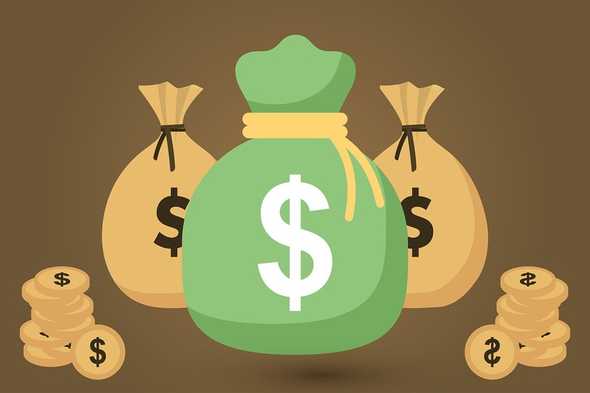Lottery Annuity vs. Lump Sum: Which Is Better?
Winning the lottery is an exhilarating experience. If you’ve been lucky enough to win the big jackpot, you will immediately be faced with the choice of taking either the annuity or the lump sum. Both have advantages and disadvantages and can be confusing.
How can you choose between the lump sum or the annuity? While annuities pay you annual payments for 30 years, the lump sum pays you the entire jackpot all at once. However, you do not get the full jackpot amount with the lump sum. What you choose depends on your situation, self-discipline, and how you want to live in the future.
You may want to talk to a financial advisor or lawyer before you choose which payment to take. For now, though, read on to educate yourself about each so you can make a more informed decision.
Annuities
Some past winners chose the lump sum payment who filed for bankruptcy a few years later, due to how they mismanaged their funds and spent everything. Annuities are a built-in way to prevent blowing through your entire winnings in a few short years.
What Are Annuities?
If you choose the annuity payment option, you will get annual payments for 30 years until you are paid almost the entire jackpot amount, minus taxes each year. Choosing the annuity option gives you closer to the advertised lottery amount because that number is based on annuity payments over time.
For a $12 million jackpot, you would get around $400,000 per year for the next 26 years. That’s not a bad yearly income, and you would get close to the $12 million advertised. A lump-sum payment of that same jackpot would be around $7 million, which is about 58% of $12 million. But your annuity payments increase by 5% yearly for inflation.
Advantages
The advantage of choosing annuity payments is that you will have an income for life that you could retire on if you’re careful. Other advantages include:
- It protects your assets from other people. Let’s face it, people always want a handout, and if you take your money in one large sum, they will be bolder in asking for more significant amounts of money. With an annuity payment, you’re protected against this by telling them you don’t have as much money.
- The contract guarantees the payments. An agreement binds lottery annuity payments so that you can depend on them for the rest of your life, and part of your survivors’ lives if you pass away before the payments are complete.
- It protects you from bankruptcy. Not everyone is careful with money, and if you are in that boat, you may want to choose the annuity option. Lifetime payments stop you from spending too much all at once, which guarantees you a consistent income.
The advantages may be enough to outweigh the disadvantages for some people. However, before choosing this option, you need to consider the disadvantages of taking the annuity carefully.
Disadvantages
Annuities are great for many reasons, but you should know about the downsides before choosing. The main disadvantage of choosing the annuity is that you will pay taxes multiple times on the same prize compared with the lump sum, due every year with your payment.
Other disadvantages may include:
- Your prize money gets invested by the lottery commission rather than you. They choose low-interest options, so you may not get the rate of return that you could if you invested it yourself.
- Getting your jackpot in several payments may not offer the financial flexibility you need to pay off debts or buy what you need.
- You might die before you receive all your payments. While you may pass your payments to your loved ones once you die, you may live in a state that does not allow that. Consider whether or not you can leave the remaining payments before choosing the annuity.
While these may not seem that bad to you, you need to understand the tax consequences of each option before you decide. As always, speak with a tax professional before you decide what option to choose.
Tax Consequences
Tax law is confusing for everyone, including perhaps the tax law writers themselves. Everyone needs to pay their share of taxes on income, no matter where the income comes from. (Well, except in Florida and a couple of other states that don't have income taxes.)Income Taxes
Every year, when your annual payment comes in, you are taxed at the current state and federal tax rates. Compared to the lump sum payments, you may pay more in taxes over time.
Estate Taxes
Your survivors, when inheriting your estate, will owe estate taxes on payments yet to be paid to them, creating an undue hardship.
Lump-Sum
Lump-sum payments can be a great choice if you have the self-discipline to invest most of it in low volatility dividend-paying stocks. Doing that may get you 3-4% interest, which is usually higher than the interest on annuity payments.
What Is a Lump Sum Payment?
When you choose a lump sum payment, you get your prize all in one payment. But you don’t get the entire advertised amount of money, as it is computed for the annuity payments. Instead, you get roughly 50%, so if the jackpot is $400 million, you will receive $200 million before taxes.
But you only pay taxes on the entire sum for the year that you get the money, which may be as high as 37%. After everything is paid out, you will end up with around $100 million. Not a bad chunk of change, but if you are not a financial whiz, you may have a problem hanging on to that much money.
There are advantages to a lump sum, however.
Advantages
When you receive the lump sum after taxes, you are free to do with it as you wish. Now, most financial advisors who tell you to choose this option will also advise you to invest or save most of it, which gives you more control over your money.
But do the advantages outweigh the disadvantages? You decide.
- You can pay yourself an annuity with wise investments. If you put your money into low volatility stocks that pay dividends, you may eventually grow your money to more than if you took the annuity option.
- One big tax payment may make your overall tax bill less than taxes on annuity payments. If you are getting $51 million annually and are paying taxes every year, you may end up with less money than if you took the lump sum.
- Compound interest can make a large sum grow even more significant over time. When you invest $400 million, it has the potential to grow to over $1 billion in the number of years you would receive annuity payments.
Of course, you always want to speak with a tax advisor before you decide, as tax laws may change since the writing of this article. Also, you need to determine what you are willing to accept. But, learn about the disadvantages of a lump sum payment before you decide.
You can also check our complete guide on lottery taxes.
Disadvantages
Lump-sum payments are not all sunshine and lollipops, as a few past winners have discovered. They declared bankruptcy a few years after winning the lottery, as they didn’t have the self-discipline to follow through with their investment and savings plan.
That’s the main disadvantage of taking a lump sum. Other disadvantages might be:
- The amount you receive may be quite a bit less than the advertised sum. The reason for this is that annuity payments are factored into that total. So you will get less.
- You could spend it all or give it all away to family and friends who want a handout. Of course, even if you make a few bad judgment calls with $300 million, you will hopefully come out ahead of the game.
It’s never easy to know what to do when faced with a large sum of money. Maybe you might be able to decide once you know more about the tax issues with this option.
Tax Consequences
You only pay taxes on this income one time, as you get the entire jackpot. Lottery winners are taxed at the current federal and state rates, while annuity payments depend on what the taxes are at the time of payment.
Many people don’t realize that, while your winnings are immediately taxed when you win, they are also subject to taxation at the end of the year.
Should you be able to hold on to this money and invest it, for your remaining years, the money will be there for your survivors to pay estate taxes once you pass on. Again, it is wise to consult a tax professional before deciding on which option is better for you.
Selling Annuity Payments Later
What if you choose the annuity payments, but then later change your mind? Is there any way to sell your annuity payments after you’ve already signed on the dotted line? If you live in one of the states that allow you to sell your lottery annuity payments, you may be able to do so if you change your mind later.
Why Sell
Life has an annoying way of throwing arrows at you when you least expect it. Circumstances beyond your control may create the need for you to have more of your jackpot money. Emergency hospital bills can happen at any time, and if they equal more than you have, you may want to consider selling your annuity payments.
Another reason you may want to sell is to save money on taxes for the next two decades. As you learned with lump-sum payments, you would only pay taxes on income received that year. Selling your annuity payments would lighten your tax load for the long term.
Who Buys Annuity Payments
If you are serious about selling your annuity, you should realize that companies exist to make money, and while they may treat you fairly most of the time, they also want to buy your annuity for less money than it is worth.
That being said, there are two types of annuity buying companies: insurance companies and factoring companies. Insurance companies mainly buy annuity payments from people who receive personal injury settlements. You won’t be dealing with them with your lottery winnings.
Factoring companies, on the other hand, buy lottery annuities. Before signing anything, or agreeing to something you’ll regret later, you need to ask them a few questions.
- Are they certified and licensed in their market? Where are they licensed?
- How long is the quote they give you good for?
- How long have they been in business?
- Are there any hidden fees you should be aware of?
- Will they charge you for the quote they give you? (It should be free.)
However, it’s not recommended to sell your annuity payments because you will not get the full value. However, if it is a last resort situation, and you have exhausted all other options, tread carefully. Consult your financial advisor before you make any move.
Why Take the Lump-Sum
As you already learned, the lump sum payment is roughly half the advertised jackpot before taxes. So why would you want to choose that option?
Age
Your age may influence your decision when taking the lump sum, especially if you have fewer years left than you’ve lived. For example, if you are in poor health, or you’re not expecting to live for as long as the annuity payments are paid out, you may want to consider taking the lump sum. Providing you don’t spend all the money before you die, it can be passed on to your heirs.
It can also help pay for any medical bills that you might incur before passing away so that your family won’t need to pay off those debts.
Good Self-Discipline
Can you pass up a sale? Do you often see them for what they are—a way to separate a person from their money? If so, you may do well with choosing the lump sum payment.
If you can resist the urge to buy frivolous items, or splurge unnecessarily, you can manage the jackpot, and perhaps make it grow in sound investments. Then, if this describes you, by all means, take the whole pot. You may do well with taking the lump sum and doubling it with wise investments.
Good Financial Sense
Do you watch the stock market like a hawk? Do you understand the differences between a bull market and a bear market? If you can answer yes to these questions, you would do well with a large sum of cash. A person who can put money into the stocks and bonds market and make it have a good return on investment will do better with the lump sum rather than an annuity.
But if you’re a person who has no idea how to grow money or, at the very least, save it, you may want to choose the annuity option. At least you won’t be blowing through your entire winnings within a year or two.
Why Take the Annuity
On the other hand, why would you choose the annuity? Annuity payments, when complete, come closer to the advertised amount before taxes in some locations. But after taxes, you may end up with less money. So why would you choose the annuity option?
Young and Full of Life
The annuity option would set you up for life if you are young yet and have a long life expectancy. Providing that you can manage $1 million or more per year income, you could retire and follow your dreams for as long as the payments last. The annuity payments usually come in once per year, which means you still need to be frugal to some degree, but you wouldn’t need to worry about money, should you make a rather large payment.
The one thing with annuities that you must remember: if you pass away unexpectedly, most states will allow you to pass on your remaining payments to your survivors or beneficiaries that you set up when you cash in your winning ticket. The advantage of choosing the annuity is that it could also set your family up for life.
Terrible Financial Sense
If you’ve never played in the stock market or made terrible investments, annuities are the better choice for you. When you only have a certain amount of money to use, you won’t blow through the entire jackpot at once. If you make a terrible decision, you will still have next year’s payment to bail you out.
The lump-sum option will be a poor choice if this describes you.
Spontaneous Spender
If you spend money like it is water, then you will need the annuity option! If you think a sale means you must spend money, and you’re convinced you’re getting a great deal on something you wouldn’t consider buying without a sale, then a lump sum payment is the wrong option for you. Or, if you are prone to buying big-ticket items if you have the money, don’t choose the lump sum payment.
The annuity option is best because you have limits on how much you can spend at one time, and it will reign in your spontaneous habits.
So what should you choose?
Consider Your Options Carefully
When you claim your prize, you want to be entirely sure that your choice is the best for you. You don’t want to run out of money because you spent it too fast, nor do you want to limit your investment options with the annuities if you’re a decent investor.
Evaluate Your Spending Habits
Some people love to go shopping as a means of therapy. “Shopping therapy” helps some people feel better after a stressful moment in their lives. While they may not spend a lot at one time, every dollar spent adds up. The only reason they don’t spend a lot at one time is that they don’t have a lot.
If this describes you, what do you think will happen if you have millions of dollars at your disposal at one time?
Before choosing between the lump sum or the annuity payout option, consider your spending habits. Consider how much you spend now in relation to how much you would spend should you have a lot more money in your bank account.
Some people are very good with money and only spend on necessities. You would do well with a lump sum if you’re one of these people because you would save most of it for your golden years and only use what you needed to get by.
On the other hand, if you see money as something to be spent, rather than saved, then you need the annuity option if only to protect yourself and your loved ones from bankruptcy a few years later.
Consider your spending habits before you choose, so you’re selecting the right option.
Make a List of Your Goals, Wants, and Needs
What do you want from life? What do you need to live comfortably? What goals do you have for your life?
Make a list of your wants, needs, and goals before choosing between the lump sum or annuity so that you can adequately provide for those things.
Goals
Your goals are things like going back to school, starting a new business, having enough money for your children to go to college, etc. What do you want to accomplish in life?
Make a list of all of your goals. Then write down how much each of them might cost and compare it to how much money you would get with an annuity, minus your living expenses, and savings plan. If your annuity payments would not cover everything, consider a lump sum payment instead.
Wants vs. Needs
Wants are not needs, so don’t put a boat on your needs list. (Unless you want to start a fishing company, which would fall under the goals category.)
Your needs are something that you need for survival and relative comfort. These may include housing, food, clothing, heat, and cooling, and a car to get you from point A to point B. The internet used to be a luxury item 30 years ago, but now it is a need, based on how we connect today.
Make a list of your needs vs. your wants. Your wants will be everything else that does not cover basic survival or comfort. A new car might be a need, but a sports car is a want.
The chances are that your wants list will be longer than your needs list. But, consider that you need to provide all your needs and only some of your wants. Choosing an annuity can get you what you want, in time, if you pace yourself.
Consider Your Lifestyle
The last thing to consider is your lifestyle. Vacations, eating out, going to clubs or movies, and more are all a part of your lifestyle. You may not be able to get to do all those fun things right now, but consider how much you would like to do later once you have the money to do so.
Consider what you want to do. A lump sum might be reasonable if you’re going to have one big trip around the world before you die. However, if you have many things you want to do, you could spread them out over the years with the annuity option and have something to look forward to every year.
So what do you think? What option do you think is best for you?
Which Option Is Best?
Now that you’ve considered both sides of the coin, it’s time to make your decision. But before you make your final choice, consult your financial advisor first. Until then, let’s look at a couple more considerations.
Annuities
Many annuities have a cost of living increase already figured in the payments. However, some do not. Before choosing this option, be sure to check the annuity provider’s credit rating, so you can be sure they will be able to pay you your entire winnings.
Lump-Sum Payment
You only get roughly half the advertised jackpot because state lottery officials claim you can recover the other half if you wisely invest it. While this may be true for some people, it may not always be true for others.
The Bottom Line
Winning the lottery is an exciting time for anyone and one that proves to be an emotional roller coaster. If you don’t take the time to consider your options, you will regret it later.
Lump sums and annuity payments have their place and can provide financial security if they are invested wisely or saved. Whatever choice you make needs to be right, not only for you but for your family for years to come. Make the wrong choice, and you will have blown the best chance for financial security you will ever get. Create financial security for your family through wise and prudent decisions.




























